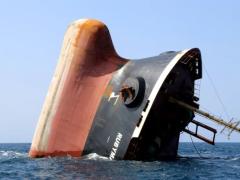As South Africa awaits a credit rating review by ratings agencies in the coming months – which could negatively affect state-owned entity (SOE) funding – economists are hopeful that ratings agencies will see the release of the State Capture report as a positive sign of institutional strength.
Gina Schoeman, South Africa economist at the global bank Citi, was cited by daily business news site Fin24 as saying: “It’s never good to have an official report of findings that the leader of your country may be implicated in corruption, but what’s important is that it shows our institutions are strong and that there’s no meddling.”
She pointed out that that it was for this reason that an emerging market country such as Turkey had been downgraded earlier this year on political uncertainty, while South Africa had managed to stave off a downgrade to junk status thus far. “It shows South Africa is a fairer place than other emerging markets,” said Schoeman.
Economist at BNP Paribas Securities South Africa, Jeffrey Schultz, agreed that ratings agencies would see the release of the report in a positive light. “From an institutional standpoint ratings agencies would be happy,” he said, noting that from the perspective of the financial markets the release of the report showed “a strong sense of institutional capability and credibility”.
Credit ratings agency, Standard and Poor’s, is currently engaged in reassessing its rating of SA and is due to announce the result early next month.
Low economic growth, lack of structural reform and lack of progress in the governance of state-owned companies are flagged as risks to the current rating.
Should SA see a downgrade to junk status anyway, the head of the Treasury budget office, Michael Sachs, has warned that SOEs such as Transnet and Eskom have R165bn in debt linked to SA’s rating. “10.6bn of this would need additional guarantees and/or cash injections if SA’s rating is downgraded to sub-investment grade,” he said.
A ratings downgrade would likely be followed by rating downgrades of most SOEs which would increase the funding costs of state-owned companies.













